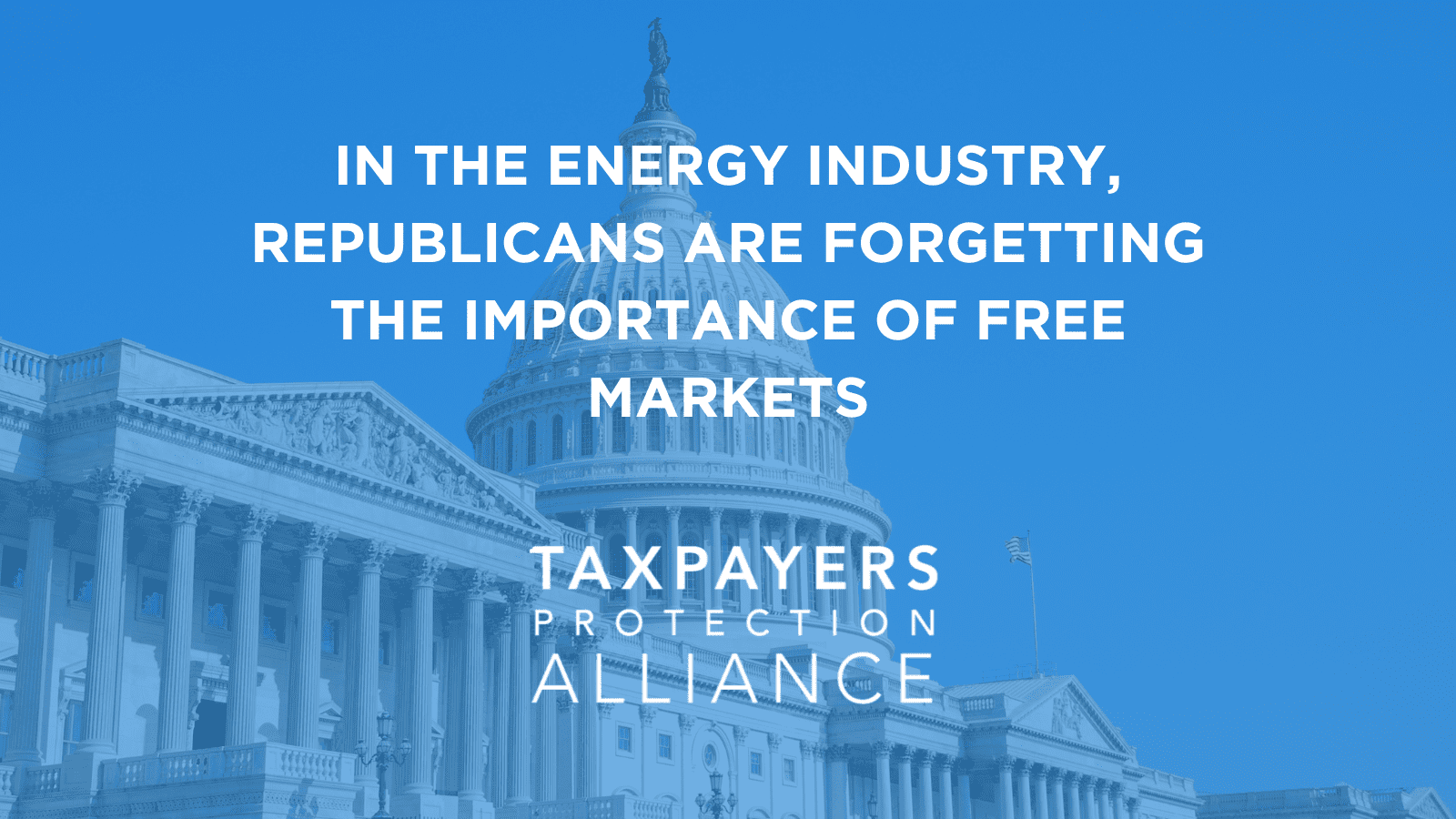
In the Energy Industry, Republicans are Forgetting the Importance of Free Markets
David B McGarry
July 22, 2025
A recent memo from the Department of Interior, obtained by Politico, states that the agency will subject “wind and solar projects [to] heightened scrutiny, potentially slowing approvals and construction across vast swaths of some of the most sun- and wind-rich portions of the country.” To proceed on the lands managed by the agency, such projects would require the personal assent of Interior Secretary Doug Burgum. According to one commentator quoted in the Politico piece, “this is a clear attempt to use ‘the process’ to kill projects.”
On X, Taxpayers Protection Alliance (TPA) President David Williams wrote: “One person should not have this kind of power to approve or disapprove a project.” Quite right. Even if the reported memo’s scheme comports with statute, this development is quite worrisome. The Constitution vests Congress, and only Congress, with the power to legislate. Yet, the executive branch is now claiming unilateral authority to condemn a large portion of one of the nation’s most important industries. The American energy sector finds itself subject to the will of bureaucrats, not of lawmakers.
In large part, the blame attaches to Congress, which in the last century has contented itself with shuffling off vast tranches of its authority to the White House and the administrative state. Moreover, the extent of federal land holdings, and the extent to which the energy industry must operate on federally owned lands, necessarily subjects energy companies to bureaucrats’ whims and the attendant political and economic pathologies.
First, the political pathologies. The rule of law requires stable, general, consistently applied, and known directives, within whose framework economic actors can formulate and execute plans of action. Activities the law permits may not be forbidden, after the fact, should regulators decide find reason to disapprove of them. “Under the Rule of Law…the individual is free to pursue his personal ends and desires, certain that the powers of government will not be used deliberately to frustrate his efforts,” Friedrich Hayek wrote.
The current approvals process for energy projects cannot be squared with these principles. Whatever their economic merits (see below), the production of clean energy is a legal business to pursue. A wholesale attempt to contort the government’s outsized control of land and the American economy to stifle the industry breaks with the rule of law tradition, a tradition integral to conservatism and the American project.
Next, the economic pathologies. TPA has written skeptically of the economic viability of clean energy — from solar power to electric vehicles. However, such determinations are best made by markets, not regulators. And indeed, markets have made clear that market-distorting industrial policy shoving the market toward clean energy and its technologies will not result in widespread adoption. Republicans should maintain their trust in the market process and allow energy projects of all kinds to succeed or fail on their merits.
The Trump administration’s correction from former President Biden’s disastrous promotion of clean energy risks drifting into overcorrection. Republicans now in office ought not to counter Democrats’ mandates and subsidies with alternative anti-market government interventions to promote GOP-favored energy projects.
